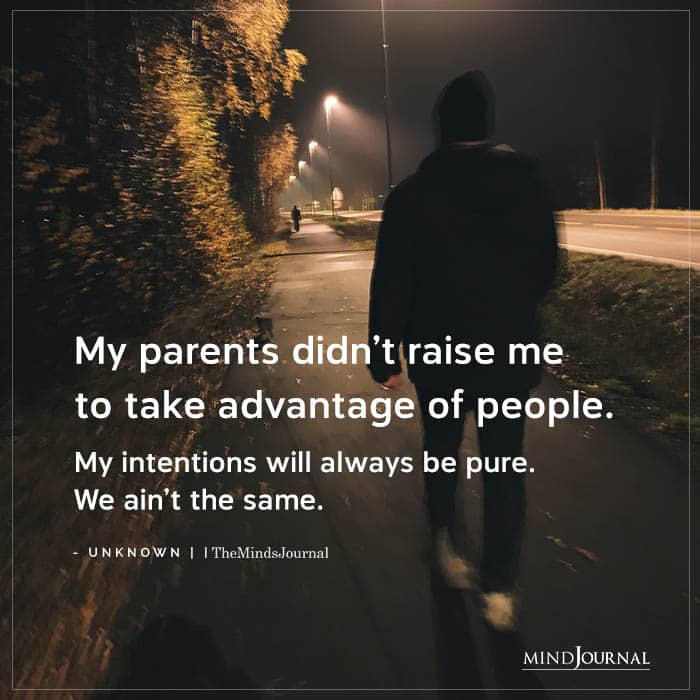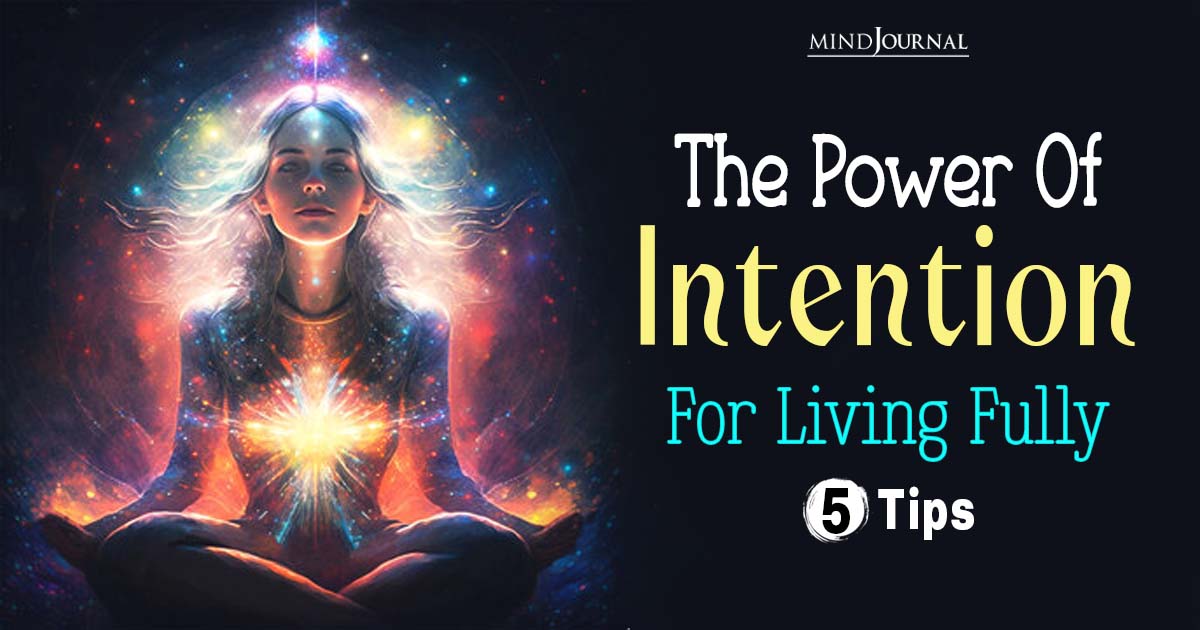Living with intention is one of the most powerful skills to learn, and once you understand the power of intention, and learn how to master it, you’ll see how much your life changes for the better. Let’s explore the power of intention, and what it means living a life of intention.
KEY POINTS
- Intention is knowing who we want to be and where we want to go, as well as how we navigate getting there.
- We can feel discomfort when we live out of alignment with our intentions.
- Clarifying our intentions and recommitting ourselves to them regularly helps us feel confident and vibrant.
“Attention and intention are the most powerful tools of the spiritually adept. They are the triggers for attracting both a certain kind of energy and a certain kind of information.” – Deepak Chopra
How often is your behavior dictated by your habits and impulses, rather than your real intentions? Maybe you make plans to go to the gym but end up at happy hour. Or find yourself impatient and irritable with your child, only to feel guilty afterward.
“Right Intention,” the second fold on the Noble Eightfold Path, involves bringing conscious intention to the forefront of our minds so that we use our values and intelligence, rather than our fears or habits, to guide our behaviors.
Living With Right Intention
Right Intention is more than a goal; it’s a way of being in the present moment (the ever-changing present) that is based on understanding what matters most to us. It’s knowing the kinds of human beings we wish to be and the impact we want to have on the world.
This doesn’t mean making painful sacrifices or trying to be perfect. In fact, living in line with our intentions is liberating, as it means fewer uncertainties and regrets. Living off of autopilot and with a reverence for the choices we make each day makes life vibrant and meaningful, even more precious.
To live this way, we must clarify our intentions. Clear intentions help us make big and small decisions. They also help us make sense of the discomfort that arises when we have made the wrong decisions.
For example, after speaking badly about someone, most of us experience physical, emotional, or cognitive unease. It may be subtle—a mild twinge in the gut or an intrusive memory of what was said. Why? Because most of us have an intention—consciously explored or not—to avoid causing harm to others.
In psychology, we sometimes refer to the disconnect between our values and our behaviors as cognitive dissonance. Cognitive dissonance impacts all of us, from animal lovers who don’t like thinking about where their meat comes from, to chronically spending rather than saving, to drinking and eating too much when we intend to care for our bodies well.
We have sophisticated cognitive strategies, like rationalization and blaming, that help us reduce the discomfort of dissonance. Unfortunately, these strategies often serve to take us further from the root of the difficulty: knowing and living in alignment with our intentions.

Intentions and Karma
Intentions are at the heart of the concept of karma: the intentions behind our actions create energy that shapes our futures. Wholesome, compassionate intentions create a very different karmic future than selfish or vengeful intentions.
Every act, and its accompanying intention, creates a ripple we contend with sooner or later. Indeed, how we feel today is a product of our actions, and the intentions behind those actions, in the past.
Don’t believe in karma? Ask a neuroscientist. They’ll tell you that what we do repeatedly wires into our brains, changing our nervous systems to promote more of the same behavior. This is how we master skills like playing the piano; it’s also how we form bad habits and addictions.
Similarly, each choice we make has an impact. It’s a seed planted, awaiting the right conditions to bloom. Buddhist scholar and psychologist Jack Kornfield quotes a Chinese Buddhist text that beautifully captures this idea in his book, The Wise Heart:
“From intention springs the deed,
from the deed springs the habits.
From the habits grow the character,
from character develops destiny.”
Related: 50 Quotes About Intentional Living: How To Live Like You Mean It
The Power Of Intention
Clarifying Your Intentions
So how do we clarify our intentions so that we can live more fully? Here are some tips from Buddhist psychology.
1. Check your beliefs and motivations.
Our intentions stem from our beliefs about the world (Right View). Wrong beliefs lead to wrong intentions, which creates more confusion and problems.
Kornfield states: “When our motivation is rooted in anger, unworthiness, grasping, self-judgment, fear, and depression, and we act from these intentions, we perpetuate these painful patterns.”
When making a decision, pause and ask yourself from what beliefs and motivations you are acting. If you identify biased thinking or an urge to act out of fear, anger, or pain, stop and reconsider your mindset.
Is there another perspective you can take? Is there a forgiveness practice you can undertake prior to acting? What action would you take if operating from your most wise, compassionate self? Don’t be afraid to change your mind, accept that you’ve been wrong, adopt a new perspective, or act like the bigger person.
2. Clarify your intentions in writing.
This might take some exploration. If you need help refining your intentions, spend some time gathering ideas on paper. You could do this slowly, over the course of a week, or in one dedicated chunk of time.
Choose words, statements, quotes, or images that capture the feeling you want for yourself in the world or for the world. Find a theme or themes amongst the ideas you have gathered. See if you can distill it down to a few words or one sentence.
Adopt this as your intention for the month. Write it down and put it somewhere you will see it. Consider making a collage or vision board to bring to life what these words mean to you. Let yourself update your intentions as often as needed—as you grow and change, so may your values, goals, and intentions.

3. Dedicate yourself every day.
It’s very easy to pick sweeping, beautiful-sounding intentions. It is much harder to practice them every day. To act with Right Intention, we must commit and recommit consistently so that they remain at the forefront of our minds. To accomplish this, I recommend adopting a morning ritual to remind you of your intentions.
For example, it could be a brief gratitude practice, a short reading, journaling, or prayer. With this ritual, we set the tone of the day with our deepest intentions in mind. Then, we practice regular check-ins during the day and especially when facing decisions. You can set an alarm on your watch to help remind you, or create a habit of revisiting your intentions over lunch or each time you use the bathroom.
Finally, we check in at the end of the day to see how we fulfilled our intentions and where we fell short. We do this to learn, not to punish. We are not striving for perfection. We are simply checking our compass to make sure we are still on course, and making any course corrections necessary, welcoming all the learning lessons offered along the way.
Related: How To Use The Power Of Intention And Manifestation To Attract Abundance
4. Focus on the idea of karma.
If you have trouble articulating clear and specific intentions, you can channel the idea of karma to help you navigate daily life with broader and more flexible intentions. Every day, each thought, each choice, and each action is an opportunity to generate positive or negative karma.
You don’t need to be a Buddhist scholar to recognize the kinds of thoughts, actions, and behaviors that lead to good karma: those that are helpful, compassionate, loving, and generous. When we show compassion, love, and generosity to ourselves and others, we create positive energy in the world that shapes our future circumstances for the better.
If it serves you, think of your life as a series of karmic opportunities and use the idea of generating positive karma to help guide your choices. If you pay attention, this will probably lead you to gaining clarity on which intentions are values most personally meaningful in your life.
I hope this brief dive into the second teaching of the eightfold path inspires you to practice living with intention. With consistent practice, you will find that you feel more confident, grounded, and inspired in your daily life.
“For more like this, sign up for Jordan’s newsletter at wildheartmt.com.”
Written By Jordan Fiorillo Scotti Originally Appeared On Psychology Today










Leave a Reply